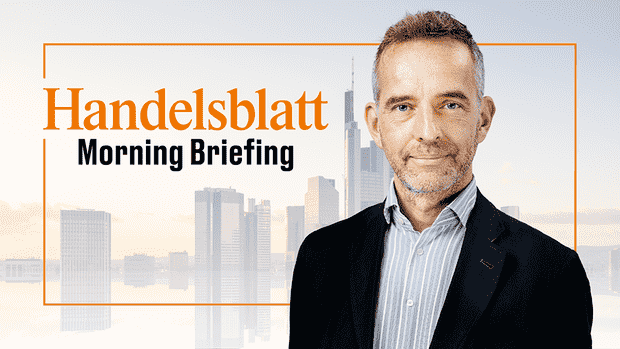Good morning dear readers,
Yesterday afternoon, when I edited the cover story of our start-up reporters Larissa Holzki and Nadine Schimroszik, I was once again amazed at the fascinating scene in which the two are on the move. The start-up world is capitalism in overdrive, creative destruction with jackhammers and dynamite sticks.
Among other things, I learned the nice word “liquidation preference”. “Liquidation preferences guarantee investors that their claims will be served first when a company is sold – and in the worst case, former lenders, founders and employees will get nothing,” explains Morgan Stanley banker Tammo Bünnemeyer.
After years of venture capital for start-ups in Germany being in abundance, investors have suddenly become choosy due to the rise in interest rates and the economic downturn. If a start-up urgently needs money in the current situation, then it will accept quite a few things, including a preference for liquidation if in doubt. Bünnemeyer: “Sometimes investors just get their investment back, sometimes they are guaranteed to get around 1.5 or 2 times the invested capital.”
Top jobs of the day
Find the best jobs now and
be notified by email.
Conclusion: As usual, start-up founders and financiers are in the same boat. But some now travel first class with life jackets, others steerage.
What I also learned: There are now around three dozen German start-ups that are valued by investors at at least one billion euros. For the so-called unicorns, the bridle path now forks, left to the gold mine, right to the sanctuary.
Only those who can present a plausible way to be in the black or who are working on really groundbreaking innovations have the prospect of further venture capital. Our start-up team has subjected the future prospects of all German unicorns to a crisis check. They gave the grade “very good” three times – and once “poor”.
More than almost any other manager, Mario Mehren is under pressure to justify himself when it comes to Russia. The head of Germany’s largest oil and gas producer Wintershall Dea had blocked every interview request since the start of the war in Ukraine on February 24.
Now the manager spoke to the Handelsblatt – and there was a lot to explain. Wintershall Dea was financially involved in both Nord Stream pipelines and had to write off more than one billion euros.
Above all, however, the company is producing oil and gas together with Gazprom in Siberia – to this day. Only recently was the accusation made in the “Spiegel”, among others, that gas condensate from Wintershall Dea also goes to the Russian military, which Mehren denies in the interview.
The moral pressure on the Wintershall boss to finally draw a line under the Russian business is enormous. But there is no clear declaration of withdrawal from Mehren.
- And after a few verbal rounds, he gives the reason: “The only way we could withdraw from Russia would be to donate our activities to the Russian state. We don’t think that’s expedient either.”
- He also has a clear answer to the question of the value of the Russian Wintershall activities: “Our assets are on our books at around 2.5 billion euros. We have a fiduciary duty to our shareholders’ wealth. We cannot just throw away our Russian activities.”
- Wintershall Dea’s majority shareholder is BASF. Perhaps Ludwigshafen sees an opportunity to free more people from their troubles? The manager hints: “We are looking at how to legally separate the international business that we have from the Russian business. When the review is complete, we will consider together with our shareholders what further steps we can take.”
(Photo: Reuters (2), Getty (3))
And another one speaks plainly in the Handelsblatt: Wolfgang Schäuble, who celebrates his 50th anniversary in the Bundestag in November. With him, a sharp intellect is now paired with the ruthlessness of old age. Here are the most surprising quotes.
- About Angela Merkel: “Whether Mrs. Merkel will be classified as one of the great chancellors is perhaps still too early to say conclusively. It is worth noting, however, that even now, with regard to Russia, she cannot say that we made mistakes. Annegret Kramp-Karrenbauer said it right: I’m so angry with us.”
- About climate activists who block traffic: “The young people are right. It is clear that they also exaggerate. But look what Greta Thunberg and Fridays for Future have achieved: Without the pressure of young people, politics would move much more slowly on climate protection.”
- About plans to overthrow the chancellor during the refugee crisis in 2015: “During this time, some people came to me with such requests. I declined that.”
Best regards
Her
Christian Rickens
Editor-in-Chief Handelsblatt
PS: Before you read on, I have an offer on my own behalf. With today’s morning briefing, you have the one-time opportunity to read all articles on handelsblatt.com and in the Handelsblatt app free of charge for four weeks. Access then ends automatically. Test the Handelsblatt digitally now.


